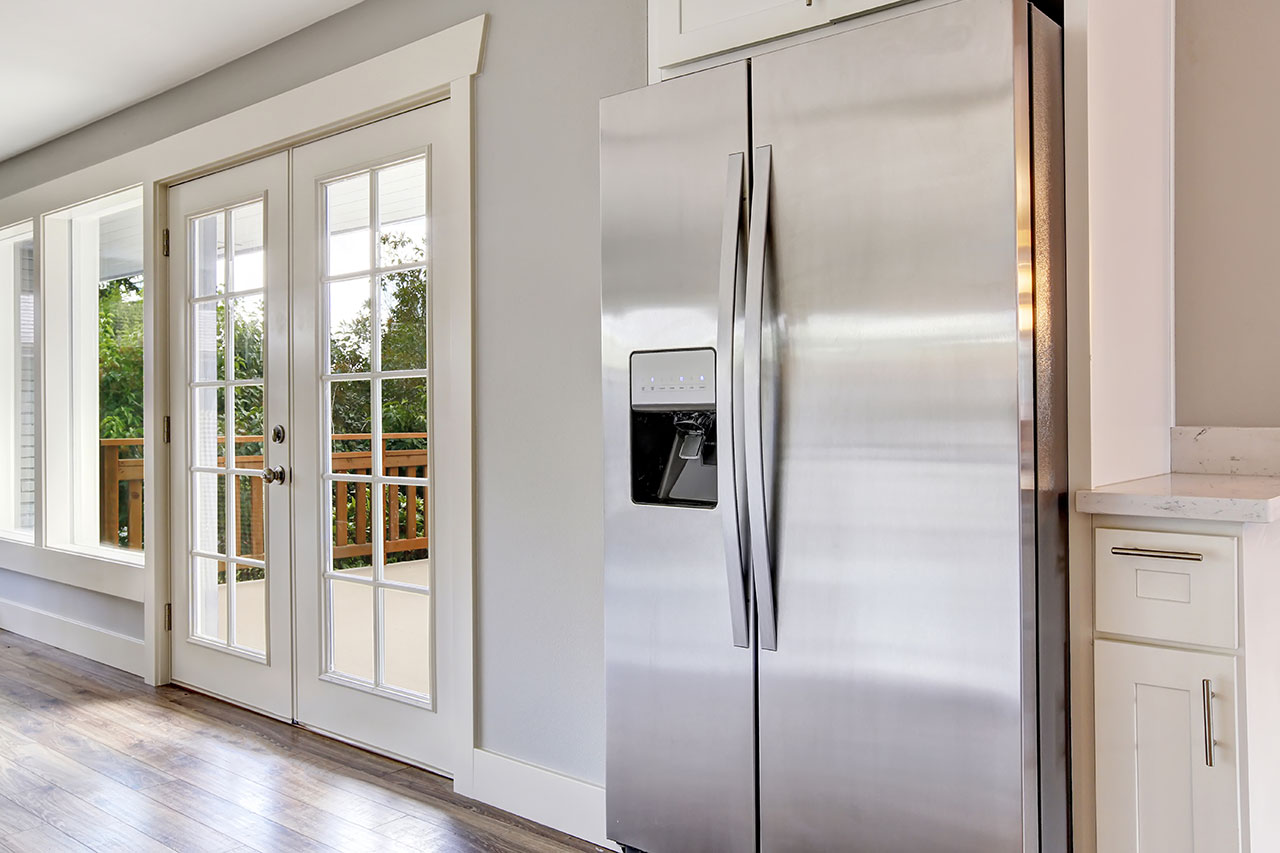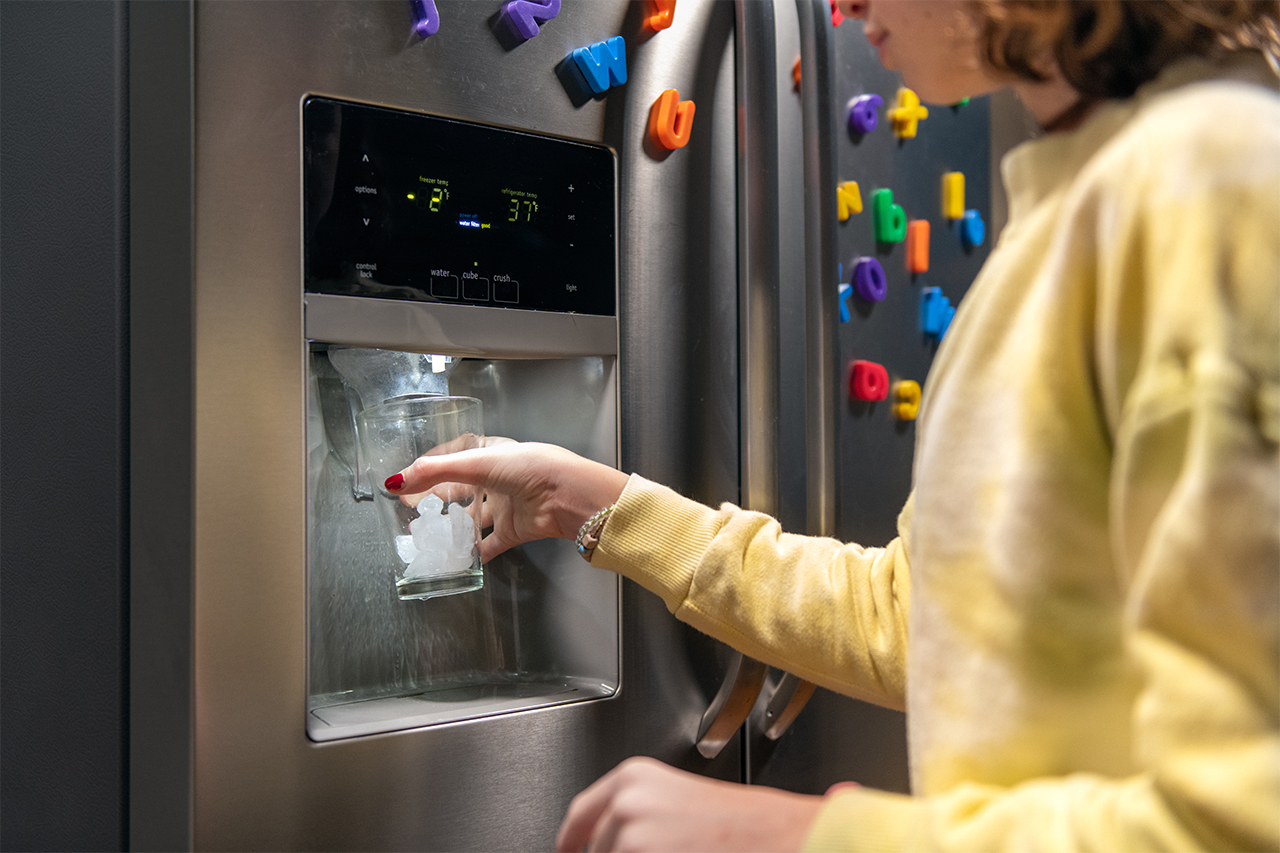How Much Does Garbage Disposal Installation Cost?


Garbage disposals simplify kitchen cleanup by grinding solid food waste to send through your pipes, cutting back on unpleasant food odors in trash cans and making meal prep easier. Garbage disposal installation costs range from $150 to $950, with an average cost of $400.
A new garbage disposal costs as low as $55 if you can install the unit yourself, including the price of the required tools. Other costs include varying unit prices, professional labor, and installing a grounded outlet where needed.
Garbage Disposal Replacement Cost
The cost of replacing a garbage disposal is about $400 on average. The price is comparable to that of installing a new disposal, minus the extra wiring which should already be in place.
"If you already have a disposal in place, swapping it out for a new one is fairly simple,” says Andy Kilborn, Angi Expert Review Board member and owner of Andy’s Handyman. “If you need to add electrical, the complexity and price will go up."
Garbage Disposal Prices
Garbage disposal prices will vary by brand. Below are some popular garbage disposal brands and the average price ranges for the units.
| Brand | Average Cost |
|---|---|
| GE | $110 – $290 |
| InSinkErator | $100 – $340 |
| Moen | $90 – $240 |
| Waste King | $50 – $170 |
Garbage Disposal Cost Factors
Your cost to install a garbage disposal will vary based on labor, the type of unit, the potential cost of rewiring, and any accessories you add.
Continuous vs. Batch Feed
Two types of garbage disposals are available: continuous feed and batch feed. Both send waste through your sewer or septic system, but each feeds waste in a different way.
Continuous feed disposals: These cost $170 on average. They’re the more common and less expensive of the two varieties. This type allows you to feed waste as long as the power switch is on, permitting the disposal of larger amounts of waste without delay.
Batch feed disposals: These cost $220 on average. These grind your kitchen waste in batches. They operate like continuous feed disposals, but with a special cover that keeps other items from falling into the grinder.
Cost of Wiring
If you don’t have a grounded outlet to power the garbage disposal, you’ll need to factor in the cost to install an electrical outlet. This may cost as little as $5 when placed near existing electrical wiring, plus an additional $75 per hour in electrician fees.
If there’s no existing electrical wiring nearby, it’ll likely cost around $90 to install, depending on labor and parts. If your project requires the addition of a new switch and wire, you may spend an average of $5 to $10 on materials, plus 30 additional minutes of labor.
Accessories and Other Considerations
You can enhance the functionality of your garbage disposal with accessories and additional parts. Consider whether one of these upgrades may be appropriate for use in your home as well.
| Garbage Disposal Accessory | Average Cost |
|---|---|
| Treatment dispenser | $40 |
| Treatment | $10 per bottle |
| Dishwasher drain connector | $11 |
| Push-button system | $14 |
| Baffle | $10 |
| Septic assist cartridge | $12 |
Treatment Dispenser
If you have a septic tank, consider a treatment dispenser attachment at an average cost of $40. Dispensers treat the septic tank and prolong its life span. Treatments cost about $10 per bottle. Some garbage disposals even come with scent-release mechanisms for use with septic tanks, which seal the top of the disposal unit to prevent odors and cost about $30.
Dishwasher Drain Connectors
The fitting for drain connectors can cost around $9 to $15, or $11 on average. This mechanism will run your dishwasher water through the garbage disposal, preventing possible clogs.
“To avoid a clogged dishwasher drain (one of the most common service calls), make sure to remove the plastic knock-out inside the inlet pipe before attaching the dishwasher drain hose,” says Jeff Botelho, Angi Expert Review Board member and Massachusetts-licensed journeyman plumber. “Read the instructions carefully to ensure the waste generated from washing dishes can be ground in the disposal.”
Push-Button System
Countertop push-button kits cost about $40 and are useful for starting the garbage disposal when its switch is in an inconvenient location. These are usually air-activated.
Baffle
A baffle is a $10 tool that keeps unwanted items such as silverware from entering the garbage disposal, protecting both your silverware and the disposal itself from unnecessary wear. It also helps to muffle the sound of the unit and prevent splashing while it’s on.
Septic Assist Cartridge
This $12 cartridge helps your septic tank work with your garbage disposal, breaking down food and solid waste and deodorizing sink and drain odors.
Installing a Disposal and Faucet
The cost to install a kitchen faucet is around $250, with prices going up as high as $1,070, depending on the type and finish. Installing a sink costs about $400. The cost of a plumber or handyperson you hire and the price of the equipment will also impact your final expense.
Aluminum vs. Stainless Steel
Garbage disposals are usually built using one of two materials: aluminum or stainless steel.
Aluminum garbage disposals: At an average cost of $60–$150, aluminum garbage disposals are lighter and less costly than stainless steel units. However, they tend to corrode over time due to moisture exposure.
Stainless steel garbage disposals: These cost around $150 and won’t rust or corrode as quickly as aluminum. They also offer better long-term durability against the wear and tear of regular operation.
Horsepower
Garbage disposal strength is measured in horsepower. The higher horsepower your unit has, the stronger its grinding abilities. However, higher horsepower typically also comes at a higher price.
DIY Garbage Disposal Installation vs. Hire a Pro
Installing a garbage disposal is relatively straightforward and can save you $90 to $250 in labor fees. However, hiring a professional plumber near you or a local handyperson eliminates the risk of improper installation, which can lead to water and food waste leaking into your home.
The average cost to hire a plumber is $45 to $200 per hour, while the cost to hire a handyperson is $55 to $75 per hour, depending on where you live. You can also find a local garbage disposal installer to complete the task. Additionally, if any electrical rewiring is necessary, a professional electrician must take care of this for you.
FAQs
How long do garbage disposals last?
Garbage disposals last around 10 years on average. The cost of garbage disposal repair is comparable to that of mid-range disposals, so replacement often makes more sense.
How do you know when your garbage disposal needs to be replaced?
You may need to replace your garbage disposal if you notice any of the following signs:
Unit suddenly stops working despite being firmly plugged in with a working electrical connection and manual overload protection button doesn’t fix the issue
Delayed operation, which usually means the blades have dulled
Persistent foul odors, which may point to deep clogs
Leaking from the bottom, which indicates a compromised seal inside the unit
Can I replace a garbage disposal myself?
You should be able to replace a garbage disposal yourself if the proper wiring is intact. When selecting a new disposal, look for one that’s a similar size and shape. Changing to a drastically different style will increase the complexity of the replacement, and you’ll likely need to modify the drain plumbing.
Does a plumber or electrician install a garbage disposal?
A plumber or handyperson will install a garbage disposal for you. However, if any electrical rewiring is necessary, a local electrician will need to do this.
What should you not put down the garbage disposal?
There are many foods and other materials you shouldn’t put down the garbage disposal to avoid damaging the unit or your pipes. These include the following:
Expandable foods such as pasta, rice, oatmeal, and bread, which expand in water
Coffee grounds, which clump together and clog drains
Grease, fats, and oils, which solidify when cooled
Bones from chicken, turkey, or other meats
Nuts, which can either be rough on your blades or turn into a sticky paste
Eggshells, which can stick to the inside of the unit or to other foods
Potato peels, which can either stick to other foods or turn into a sticky paste
Fibrous or stringy vegetables such as celery, pumpkin, corn husks, artichokes, onion skins, and asparagus
Pits from peaches or avocados, which are too hard and dense to grind down
Seafood shells, which are not only too hard to grind but also cause odors
Large quantities of food at once
Non-food waste such as paint, cleaning chemicals, and trash
Can you install a garbage disposal in any sink?
You can install a garbage disposal in most sinks. However, fireclay sinks can’t handle a garbage disposal since they may crack.
What size garbage disposal do I need?
The garbage disposal size you need depends on your household size. Choose your garbage disposal based on the motor strength you need for the number of people in your home.
1–2 people: 1/3–1/2 horsepower
3–6 people: 1/2–3/4 horsepower
5–8 people: 3/4–1 horsepower
Because larger motors cost more to run and tend to burn out faster over time, it’s best to get the smallest size your household needs. In most residential settings, a 3/4-horsepower unit is enough.





- Appliance (Major Electric Appliance) - Install or Replace
- Clothes Dryer Repair
- Refrigerator Install or Repair
- Repair or Service a Clothes Washer or Dryer
- Microwave Repair
- Appliance (Microwave Oven) - Install or Replace
- Refrigerator or Freezer Repair
- Washing Machine Install or Repair
- Appliance Install
- Garbage Disposal Install or Replace
- Oven or Stove Repair
- Repair or Service an Oven or Stovetop
- Appliance (Major Gas Appliance) - Install or Replace
- Dishwasher Install or Repair
- Repair or Service a BBQ Grill
- Repair or Service a Small Size Appliance
- Range Hood Install
- Repair or Service a Dishwasher
- Appliance Maintenance
- Repair or Service a Fridge, Freezer or Ice Maker



